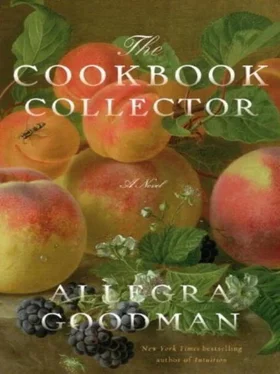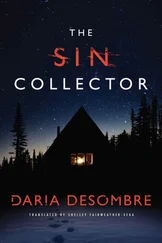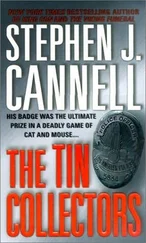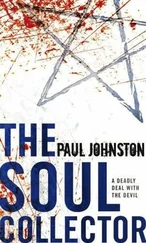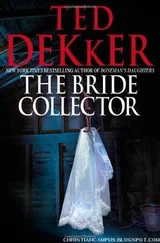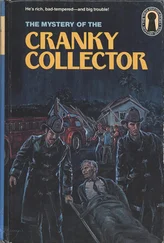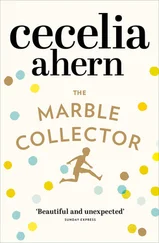“My mother wrote about music,” Jess said.
“Was she a critic?”
“I can hear your heartbeat,” she whispered, resting her head on his chest.
“Was she a musician?” he asked her, as he stroked her hair.
“I think she might have been, if she’d had the chance,” Jess said. “Or maybe not. She was an amazing baker too. That’s what everybody says.”
“You only know from hearsay? Don’t tell me you were vegan even then.”
“I wasn’t vegan. I was too young to remember.”
George’s hand stopped for a moment, resting lightly on her head.
“When will you play for me?” she asked him.
“Soon.”
“Did you learn as a child?”
“Mm-hmm.” His lips brushed her ear.
“I wish I’d kept playing the piano. Everybody says that, but of course you imagine you’d play well. You don’t imagine …”
“Do you miss her?”
“No.” She looked up at him quickly, as if to gauge his response. “I’ll tell you something terrible,” she whispered. “I’ll tell you a secret. I don’t even think about her. I’m sure Emily thinks about her all the time, but I don’t. I just …”
“Just what?”
“Don’t have her,” said Jess, muffled, burying her head again.
He continued stroking her long hair. She kept her head down, and listened to his steady heart.
“Jess?” he said at last.
“What?”
“Are you crying?”
“No.” She looked up at him and her eyes were bright, but no tears stained her face. “Don’t worry. I’m very cheerful.” She sat up straight to make the point. “I’m not a weepy person. I wouldn’t cry, even after too much wine.”
“You can cry. I don’t have rules. You can do anything you want.”
“Anything?”
“Almost anything.”
“So you have some rules.”
“I said ‘almost’ so you’d think I was less of an ancient libertine,” he said.
“Libertine? You mean old hippie.”
“I was never a hippie.”
“Right. You’re just a libertine from the ancien régime.”
He couldn’t help laughing at the playful way she turned on him.
“Am I so funny?” she asked, laughing with him. She rubbed her nose against his. “Am I?”
“Come here, you.” He pulled her closer.
“I’m here now,” she said, and her voice was so warm and low that for a moment he closed his eyes. “I’m here already.”
She caressed his cheek, and touched the tender skin under his eyes. His lips brushed her chin, her nose, her forehead, and finally her soft mouth, as they began to kiss.
Part Six
Risk
August 2001
Emily sensed that Jess was keeping something from her. She could tell by the way her sister hid behind her hair.
“Is your cell still working?” Emily asked her.
“I think so.”
“Then why don’t you use it?”
“I do. Sometimes.” Her hair fell like a curtain over her face.
They were sitting in Emily’s white condo, in the living room, and they were sharing a vegan chocolate cake Jess had brought for Emily’s thirtieth birthday. The big celebration was going to be with Jonathan that weekend at Lake Tahoe, but Jess had come for the actual day, August 8, and she was sitting cross-legged on the floor with the collection of Gillian’s birthday letters, hers and Emily’s together, in her lap.
For your eleventh birthday … For your twelfth birthday … For your twentieth birthday … I would like to see you at twenty. I think that you’ll be tall, and I want to know if I am right .
“What you should do,” said Jess, “is print these out on archival stock and make a scrapbook. This isn’t good paper, and this ink”—she pointed to the dot matrix printing—“see, it’s already fading.”
I do miss knowing you at twenty, Emily. Sometimes I’m quite sad about it, and then at other times I think I should be grateful for knowing you as long as I have. I’m greedy, like everybody else. I want to dot all the i’s and cross all the t’s. It’s never enough, is it? It’s not enough to have children. We want to see birthdays, and weddings, and grandchildren as well. I’d like to see them all. Of course there are other children I might have had, or other lives I might have lived, but I don’t dwell on those. Why, then, should I mourn this one? Because this is the life I know, and you and your sister are the daughters I love. All the rest slips into the background—the realm of the unborn. That’s another way to look at death, isn’t it? Simply the part of life that’s unexpressed. The might-haves and could-have-beens …
“Jess,” said Emily, “what’s going on with you?”
Jess looked up, startled. “Nothing,” she lied.
“You seem …”
“What?”
“Evasive.”
“Who, me?”
“Why are you so quiet?”
“Because I’m reading,” said Jess.
“You never liked to read her letters before.”
Jess thought about this for a moment. “But they’re more interesting now.”
She was spending the night at Emily’s place, and long after her sister went to sleep, Jess stayed up reading and rereading her mother’s letters. What was it about them? What was it she had overlooked before? Their secrecy. The obliqueness of the language drew her in, where before it had confused and bored her. I might have been someone else , her mother wrote. I might have married someone else. I might have lived a different way, but I chose this life, and I chose you .
The might-haves and could-have-beens, undescribed and unexplained. How had Jess missed them? She had been curious enough at twelve to read Gillian’s letters all at once, devouring those messages to her older self, but she had always looked for information. Her mother was guarded about her illness, and her feelings, and her past, all the things that Jess wanted to find out, and after reading the letters one after another, Jess had turned away in disappointment. It was Gillian’s reserve that made the letters interesting now. Those sentences Jess had always read as generalities looked different. I might have lived a different way . What did Gillian mean? I might have married someone else . Who would that have been? Perhaps after weeks with the cookbooks, Jess was overly sensitive. After so many hours pondering the collector’s notes, she saw subtexts and secrets everywhere. Even so, she began to read her mother’s words as coded messages. Dear Emily, at sweet sixteen. Never been kissed? Wished you’d been kissed? Wonder if you might have been? I didn’t wonder about kissing when I was your age, although I would later. I didn’t like to think about the future when I had one, and now that my future is running out, I think about it all the time .
“Gillian!” Jess whispered in surprise. She stared at the picture her mother had enclosed, a color photo of a laughing freckled woman in a sundress and a floppy yellow hat. An outdoor picture, a lawn chair in the background, her mother holding out a piece of chocolate cake. And as she looked, it occurred to her that she had never seen an earlier image of her mother. There were no black-and-white photos in the albums in her father’s house. No baby pictures or childhood-recital photos. Hadn’t Gillian performed in piano recitals for her teacher? And didn’t anybody take pictures? There were none. There was only the story Richard told, which was that Gillian never got along with her parents in London. That they had been so angry when she’d married a non-Jew that they cut her off completely. Therefore, Jess and Emily had never met their Jewish grandparents, or anyone from that side of the family. Gillian’s parents never spoke to her again, and she never spoke of them—or wrote about them either. And yet she said in her letters to Emily, I know from my own experience that some memories are indelible. This comforts me, because, of course, I should like to be indelible for you .
Читать дальше
